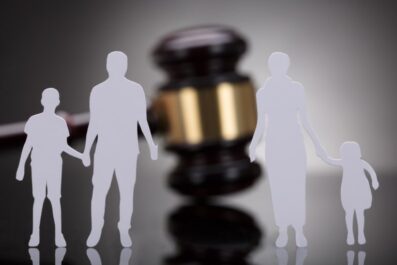Psychological Injuries in Personal Injury Claims: Seeking Damages and Recovery

In Texas, where vehicle accidents are distressingly common, with over 250,000 injuries reported in 2023, the aftermath often extends beyond physical harm to include significant psychological injuries.
Conditions such as PTSD, anxiety, and depression can be debilitating for accident victims, impacting their quality of life and ability to function.
Recognizing and compensating for psychological injuries in personal injury claims is crucial, as these damages are not always as visible as physical ones but are equally impactful.
Navigating the complex landscape of personal injury law to seek damages for psychological injuries requires a nuanced understanding of these cases’ legal and medical aspects.
A free case evaluation with a knowledgeable attorney can give victims a sense of their legal rights and the potential for compensation.
These evaluations are particularly valuable for establishing the extent of psychological harm and the necessary documentation to support such claims.
For individuals in Pearland, Texas, dealing with the consequences of psychological injuries following an accident, accessing expert legal advice can be an essential step towards recovery and securing the compensation they deserve.
Understanding Psychological Harm
Psychological harm, often known as suffering, encompasses various conditions that can surface following a traumatic incident.
These conditions may involve anxiety disorders, depression, post-traumatic stress disorder (PTSD), and other mental health challenges.
Unlike injuries that are visible and tangible, psychological harm is often internalized and can be difficult to substantiate without the guidance of medical professionals.
Establishing Psychological Harm in Legal Proceedings
To effectively assert a claim for harm in a personal injury lawsuit, it is vital to present evidence of its presence. This involves gathering proof from psychology or psychiatry specialists who can diagnose and offer expert insights on how the trauma has impacted individual well-being.
Evidence, like medical records, therapist notes, prescribed medications, and therapy sessions, can help show a connection between an incident causing harm and the resulting emotional distress. Testimonies from friends or family members noticing changes in behavior or mood can also support these claims.
Claiming Compensation for Emotional Injuries
In injury lawsuits where a link is established between an incident and the emotional harm suffered, individuals may seek damages for their anguish.
The goal of seeking compensation serves two purposes: addressing losses from therapy costs or lost wages due to inability to work and acknowledging the impact on one’s well-being.
Legal Precedents and Case Examples
Numerous legal precedents exist where compensations were granted in cases involving injuries. In one instance, a survivor of an assault received significant damages due to the intense emotional distress she endured as a result.
The positive outcomes in these cases demonstrate that courts recognize the seriousness and impact of injuries on a person’s mental well-being. It’s crucial for individuals making claims to understand these precedents when they present their cases in court.
Collaboration Between Legal and Medical Experts
Due to the complexities involved in proving injuries within a context, claimants must seek advice from professionals experienced in personal injury law and medical experts specialized in handling such cases.
Working together, lawyers and psychologists or psychiatrists can strengthen the arguments and ensure that all aspects of the victim’s health are addressed effectively.
Moreover, medical professionals can offer insights on long-term effects, treatment needs, and potential future repercussions. This information helps attorneys advocate for their clients during settlement negotiations or presenting evidence in court.
Recovery and Treatment Choices
Healing from injuries is often a process that requires professional intervention. The outcome depends on factors like the severity of the trauma, any existing mental health conditions, access to therapy resources, and individual resilience.
Therapeutic techniques often used to address wounds include cognitive behavioral therapy (CBT), talk therapy, medication management when group counseling is used, peer support, and mindfulness exercises focusing on relaxation methods.
Deciding on the treatment plan should be a collaborative effort involving trusted medical professionals and the individual seeking help.
Understanding and Assisting Those with Mental Injuries
Society must acknowledge the impact that mental injuries can have on a person’s life. Proper recognition can lead to just legal systems, heightened awareness, and timely support.
Friends, family members, employers, and communities should create an environment where seeking mental assistance is encouraged and any associated stigma is reduced.
Conclusion
Personal injury cases extend beyond harm to encompass the injuries that individuals may endure following a traumatic event. Providing evidence from experts confirming these injuries greatly aids in pursuing compensation for financial losses and addressing the emotional toll suffered.
Through efforts between medical professionals, individuals dealing with psychological distress stand a better chance at successful recovery.
We must view injuries in personal injury claims as significant as physical ones and offer appropriate support to facilitate societal healing.




